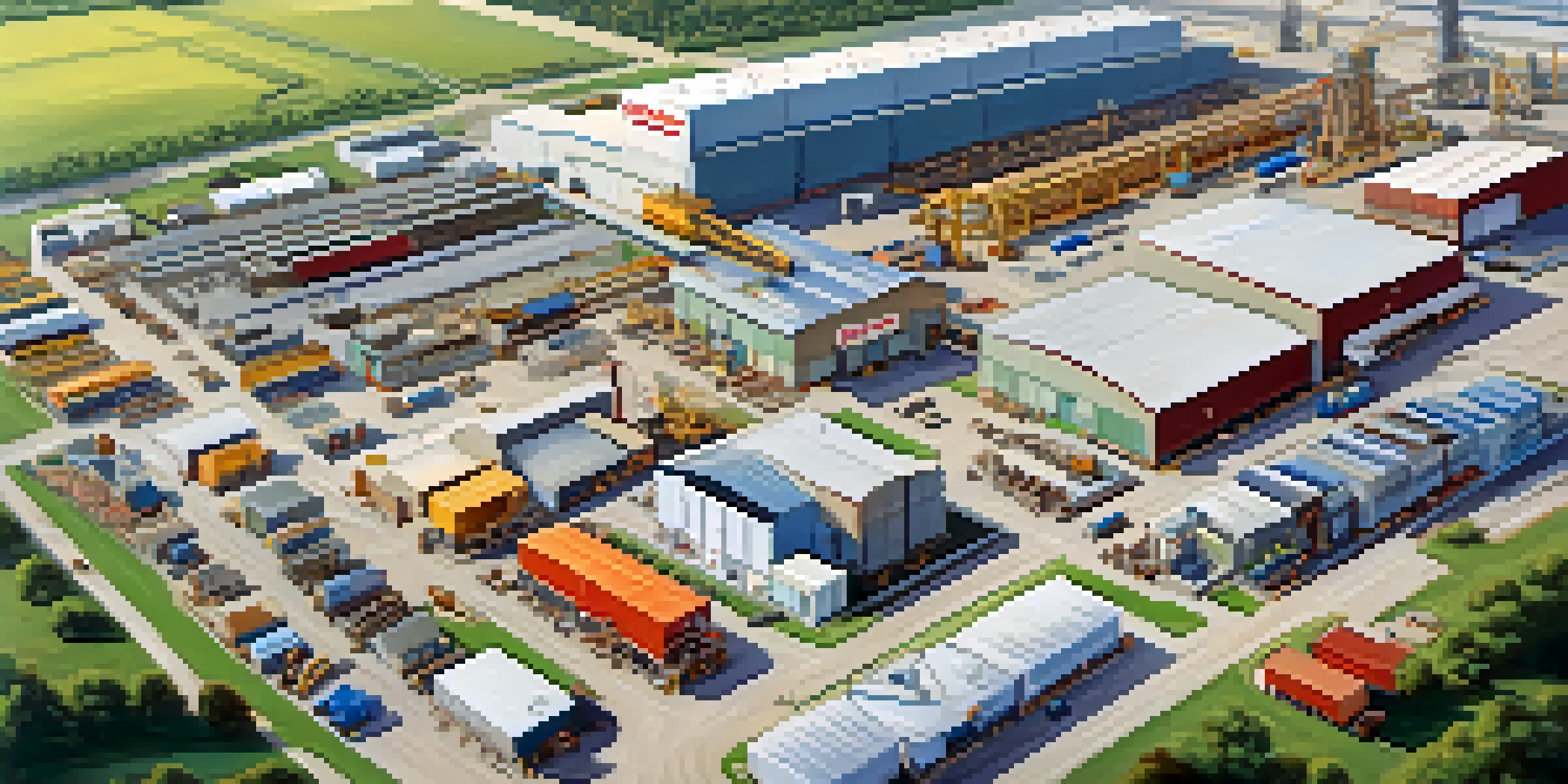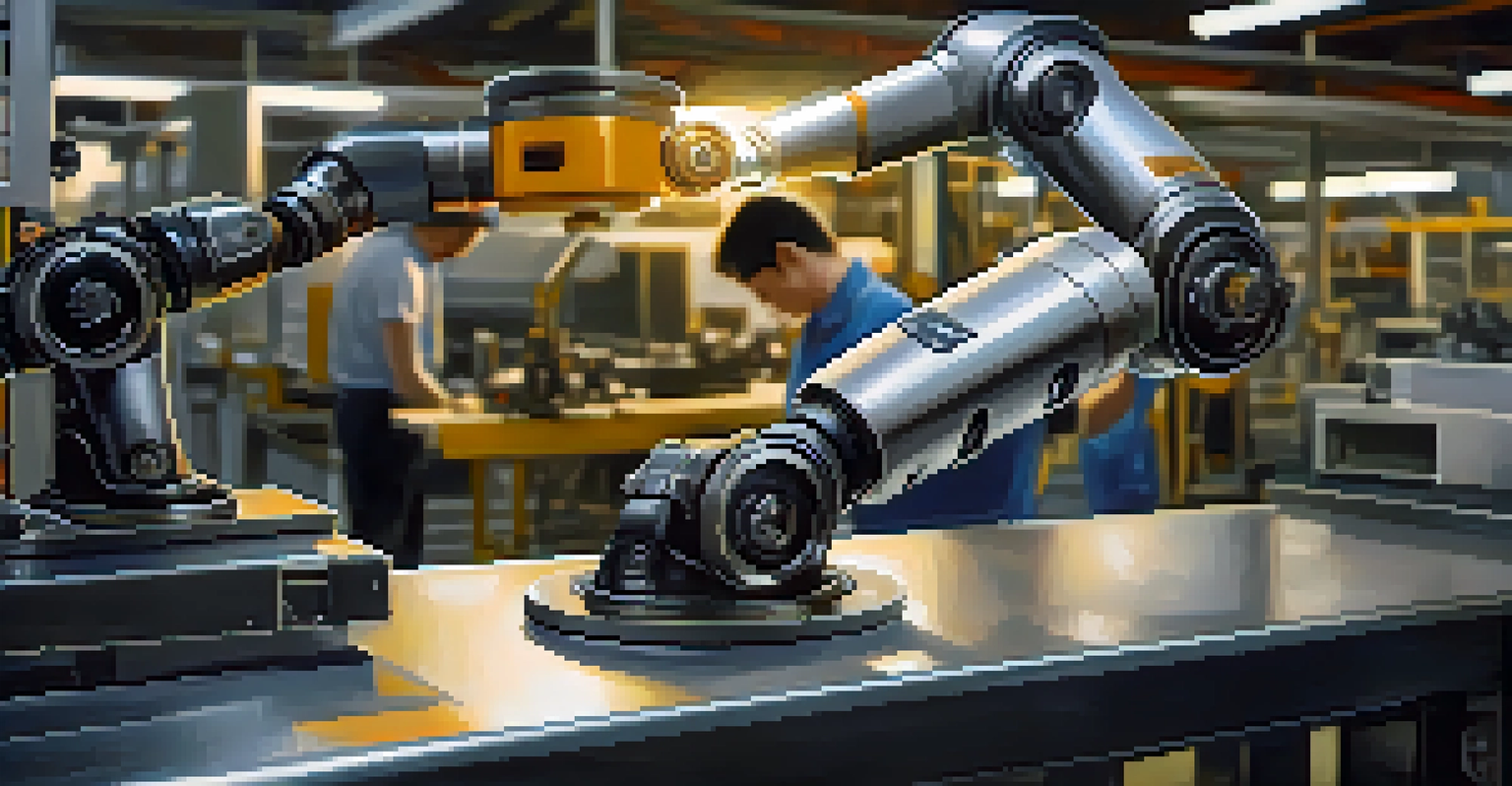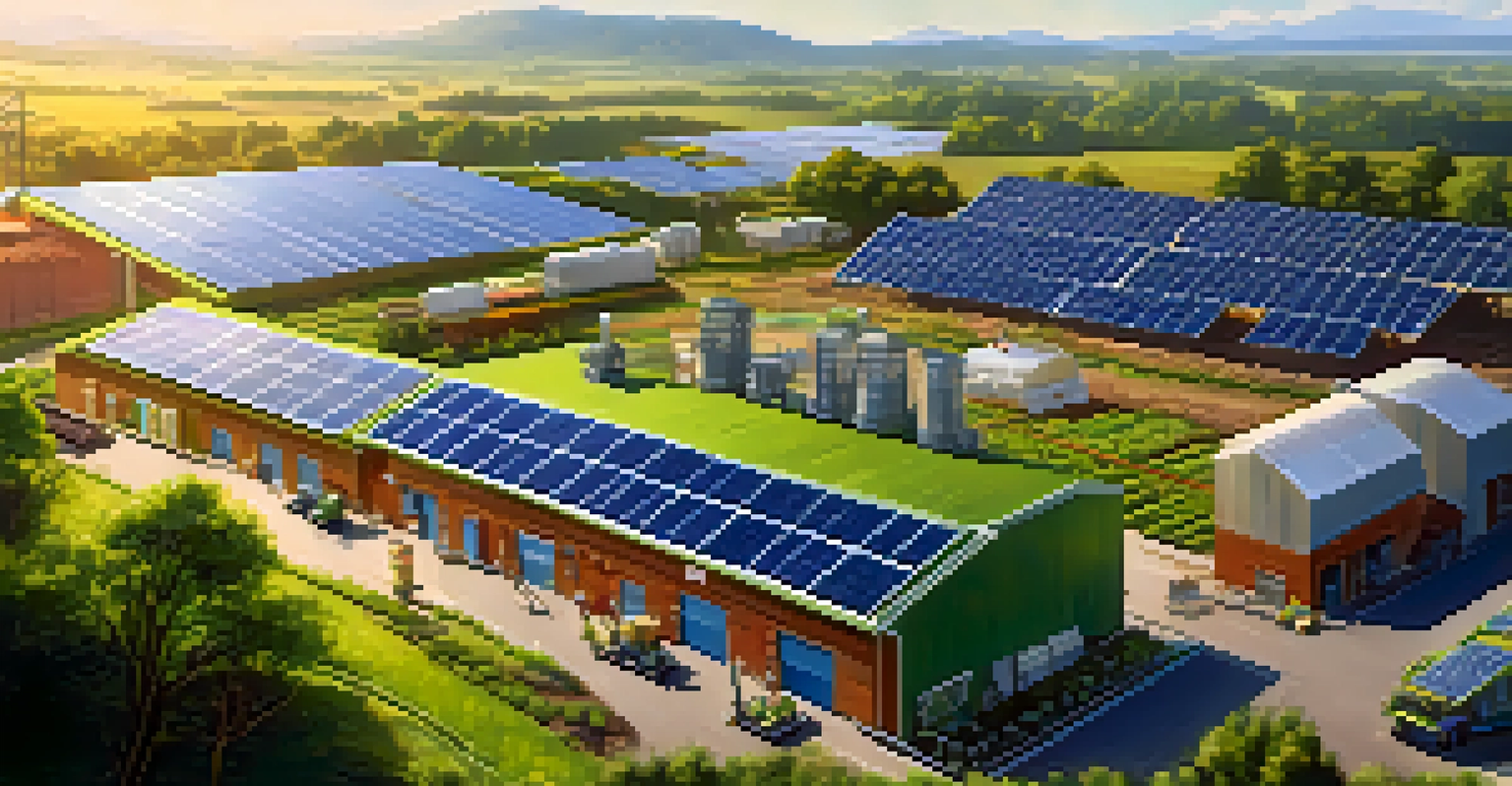Illinois' Manufacturing Sector: Strengths and Future Outlook

Overview of Illinois' Manufacturing Landscape
Illinois boasts a diverse manufacturing sector, contributing significantly to the state's economy. With over 12,000 manufacturing establishments, the state is a powerhouse in producing everything from machinery to food products. This vast landscape ensures a robust job market and a stable economic foundation, attracting both workers and businesses.
Innovation distinguishes between a leader and a follower.
The state’s central location offers manufacturers a strategic advantage in distribution and logistics. With major highways, railroads, and proximity to the Great Lakes, Illinois acts as a transportation hub that facilitates efficient movement of goods. This accessibility not only benefits local manufacturers but also enhances their competitiveness on a national scale.
Additionally, Illinois is home to a skilled workforce, thanks to numerous universities and vocational training programs. The combination of educational institutions and hands-on experience equips workers with the necessary skills to thrive in the evolving manufacturing industry.
Key Strengths of Illinois' Manufacturing Sector
One of the standout strengths of Illinois manufacturing is its innovation. The state is known for integrating advanced technologies such as automation and robotics into production processes. This commitment to innovation helps manufacturers improve efficiency and reduce costs, keeping them competitive in a global market.

Moreover, the manufacturing sector in Illinois is highly diversified, spanning industries like machinery, food processing, and chemical manufacturing. This diversity not only stabilizes the economy but also enables companies to pivot and adapt to market changes with greater ease.
Diverse Manufacturing Landscape
Illinois has over 12,000 manufacturing establishments, creating a robust job market and economic stability.
Another key strength lies in the state's robust supply chain networks. With a multitude of suppliers and service providers concentrated in the area, manufacturers can easily source materials and services, enhancing their operational agility and responsiveness.
Challenges Facing the Manufacturing Sector
Despite its strengths, Illinois' manufacturing sector faces several challenges. One of the most pressing issues is the shortage of skilled labor. As technology evolves, the demand for highly skilled workers increases, and many companies struggle to find candidates who meet these requirements.
Sustainability is no longer about doing less harm. It’s about doing more good.
Additionally, competition from other states and countries poses a significant threat. Manufacturers in Illinois must continually innovate and optimize their processes to stay ahead of rivals who may offer lower production costs or tax incentives to attract business.
Regulatory pressures and compliance costs can also hinder growth. Manufacturers often grapple with navigating local, state, and federal regulations, which can be time-consuming and expensive, diverting resources away from core business activities.
Impact of Technology on Manufacturing
Technology is reshaping the manufacturing landscape in Illinois, driving efficiency and productivity. The rise of Industry 4.0—characterized by smart factories and the Internet of Things (IoT)—is transforming traditional manufacturing processes. Companies that embrace these technologies can monitor operations in real-time and make data-driven decisions.
Moreover, automation and robotics are increasingly taking on repetitive tasks, allowing human workers to focus on more complex activities that require creativity and problem-solving. This shift not only enhances productivity but also helps companies reduce errors and improve product quality.
Innovation Drives Competitiveness
The integration of advanced technologies like automation enhances efficiency, helping Illinois manufacturers stay competitive.
As more manufacturers adopt advanced technologies, the need for ongoing training and development becomes paramount. Companies that prioritize upskilling their workforce will be better positioned to leverage these technological advancements and maintain a competitive edge.
Sustainability in Illinois Manufacturing
Sustainability is becoming a crucial focus for manufacturers in Illinois, reflecting a growing awareness of environmental impact. Many companies are embracing green practices, such as reducing waste, optimizing energy use, and sourcing sustainable materials. These efforts not only benefit the planet but also resonate with environmentally conscious consumers.
In addition, state and federal incentives for sustainable practices encourage manufacturers to invest in clean technologies. By adopting energy-efficient processes and renewable energy sources, companies can reduce their carbon footprint and potentially lower operating costs in the long run.
Sustainability isn't just a trend; it's becoming a competitive differentiator. Manufacturers that prioritize eco-friendly practices can enhance their brand reputation and attract a loyal customer base that values corporate responsibility.
Future Outlook for Illinois Manufacturing
The future of Illinois' manufacturing sector looks promising, driven by a combination of innovation and investment. As companies continue to adopt cutting-edge technologies, we can expect to see increased productivity and the creation of high-quality jobs. This transformation is vital for maintaining the state's competitive advantage.
Furthermore, the ongoing emphasis on sustainability will likely shape the industry's trajectory. Companies that align their operations with environmental goals will not only comply with regulations but also capture the growing market of eco-conscious consumers.
Sustainability Shapes Future Growth
Emphasizing eco-friendly practices not only benefits the environment but also attracts a loyal customer base.
Collaborations between government, educational institutions, and industry leaders can foster a supportive ecosystem for growth. By investing in workforce development and infrastructure, Illinois can position itself as a leader in the manufacturing sector for years to come.
Conclusion: The Resilience of Illinois Manufacturing
In conclusion, Illinois' manufacturing sector demonstrates remarkable resilience and adaptability. Despite facing challenges, the commitment to innovation, sustainability, and workforce development positions the state for a bright future. Manufacturers that embrace change and invest in their operations are likely to thrive in an ever-evolving landscape.
As we look ahead, it’s clear that the strength of Illinois manufacturing lies in its diversity and ingenuity. The sector's ability to pivot and respond to market demands will be crucial in maintaining its status as a vital economic driver.

Ultimately, the future of Illinois manufacturing is not just about surviving but thriving. With a focus on collaboration, technological advancement, and sustainable practices, the state is poised to continue making significant contributions to the national economy.